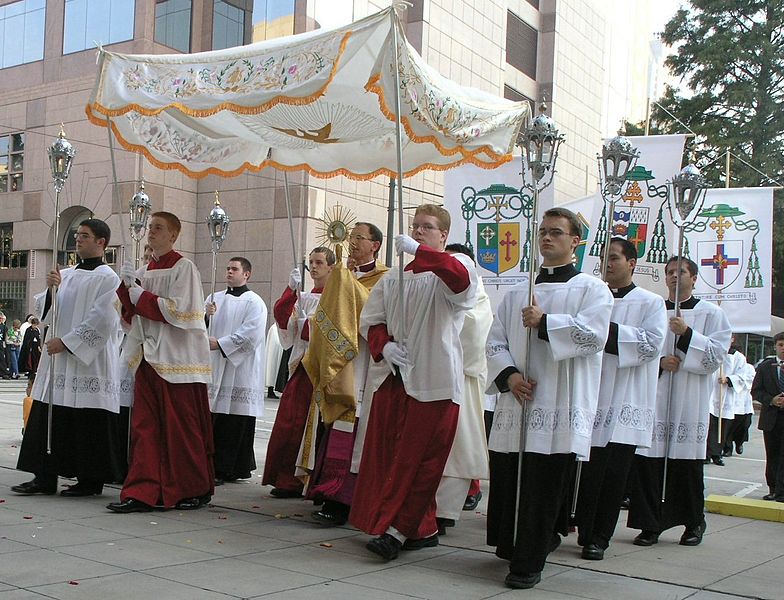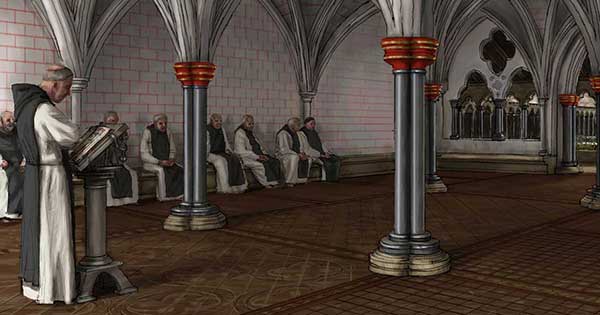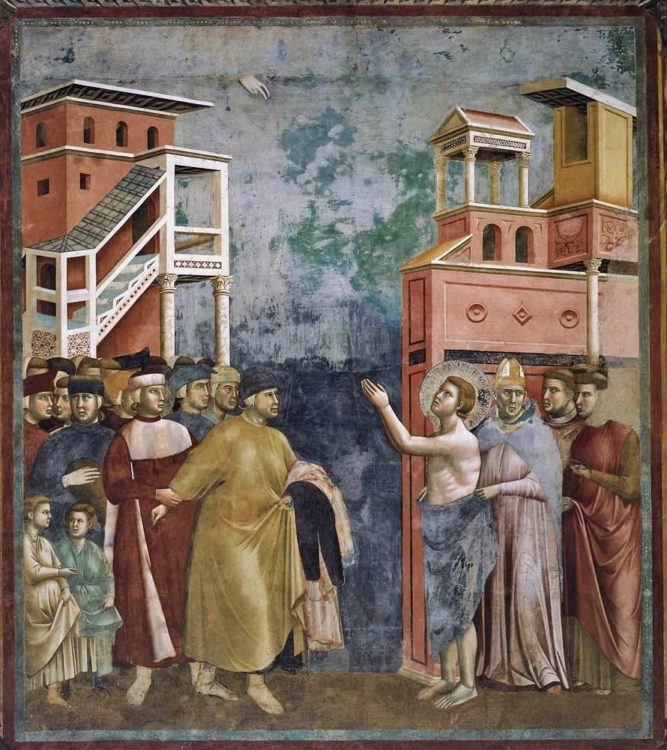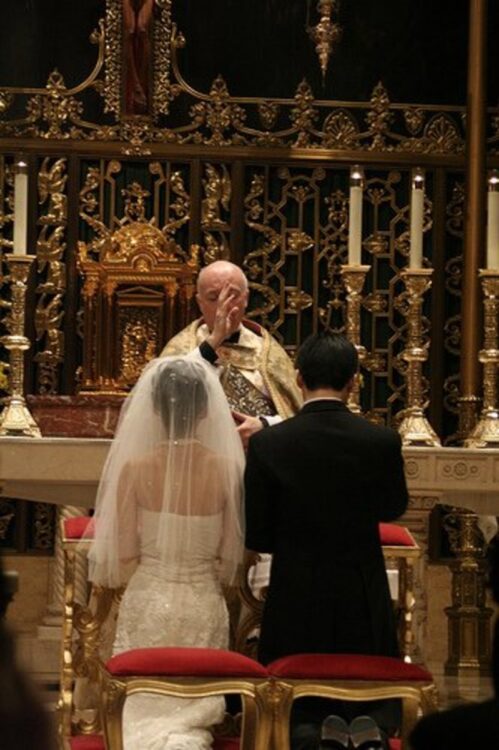I have argued that the Feast of Corpus Christi, now called the Solemnity of the Body and Blood of Christ in the Roman Catholic Church, should be celebrated in Lutheran churches (and maybe in Anglican/Episcopal, Methodist, and Presbyterian/Reformed churches as well). I have a pastoral reason for recommending this, but bear with me as I unravel the calendar complications.
The Feast of the Body and Blood of Christ is actually the delayed octave of Maundy Thursday. Octaves – eight days – are given to major festivals and days of commemoration. The octave of Maundy Thursday is delayed because the Easter season, which is an octave of octaves (fifty days, ending at Pentecost) takes precedence. Then comes the octave of Pentecost, which is Trinity Sunday. The first available Thursday is in the week after Trinity Sunday. Maundy Thursday is the anniversary of the institution of the Lord’s Supper. It’s texts and readings invite us to consider the meaning of this sacrament. Like Ascension Thursday, American Catholics sometimes delay the observance it to the following Sunday.
Maundy Thursday commemorates the anniversary of the institution of the Lord’s Supper in the last supper of Jesus and his disciples before his death. It is a liturgy in which to reflect on the meanings of the Lord’s Supper (also called the Eucharist or Holy Communion). The Eucharist is the central act of Christian gathering. But the Maundy Thursday Evening Mass of the Lord’s Supper is not as well attended as it once was. Protestants are not likely to have the Corpus Christi procession in which is the consecrated host is carried in a monstrance under a canopy (see the image above this article). But it is an opportunity to preach about the meanings of the Eucharist and its importance in Christian life. The three-year Roman lectionary provides excellent readings to serve as bases of Protestant sermons. They are:
Year A – Deuteronomy 8:2—3, 14b-16b; Psalm 147:12—20; 1 Corinthians 10:16—17; John 6:51—58.
Year B – Exodus 24:3-8; Psalm 116:12—18; Hebrews 9:11—15; Mark 14:12—16, 22—26.
Year C –Genesis 14:18—20; Psalm 110:1—4; 1 Corinthians 11:23—26; Luke 9:11b—17.
Thomas Aquinas composed the sequence hymn for this festival, “Praise, O Lord.” Lutherans should note that Martin Luther’s eucharistic hymn, “O Lord, we praise you,” is based on it.
We observed the Feast of the Body and Blood of Christ on the Sunday after Trinity at Immanuel Lutheran Church in Evanston, where I served as pastor from 1990—2013. What follows is the sermon I preached on June 26, 2011, using the Year A readings.
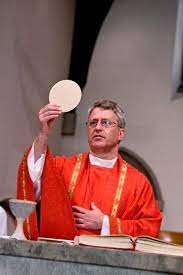
Sermon on Communion and Community
The Feast of the Body and Blood of Christ. Year A. 2011
Texts: Deuteronomy 8:21-3, 11-14; 1 Corinthians 10:16-17; John 6:51-59
There are probably not many Lutheran congregations that celebrate the Feast of Corpus Christi, now called the Solemnity of the Body and Blood of Christ in the Roman Catholic Church (although there are a few!). The great popularity of this feast in the late Middle Ages made it difficult to suppress it even in Lutheran lands. But the procession with the sacrament struck the reformers as an abuse because the sacrament was instituted by Christ as a meal to eat and drink, not an object to parade around with. Nevertheless, the Eucharist remains at the center of our life together and having a day on which to focus on it is a good thing for us.
Recovering an appreciation for the gift of Holy Communion and its many meanings has been a struggle. A pastor who was involved in the effort some fifty years ago to increase the frequency of celebration of Holy Communion in his congregation tells the story of a visit to an active member of the congregation who was a widow (let’s call her Hilda). Once when they were discussing more frequent communion, Hilda said to the pastor: “I know you think that is important, pastor, but since Henry died, I simply have not sinned enough to have to come that often to communion.”
Apart from whatever Hilda thought “sin” was, it is quite clear that Holy Communion did not have much to do with her ordinary, daily life as a Christian. Or, perhaps Hilda had been taught—perhaps by many of her pastors—that Holy Communion only had to do with an occasional need for a special forgiveness of sins. Certainly, Martin Luther in his Catechism emphasized the gift of forgiveness received from the sacrament, but that’s not the only thing he taught about it, and it’s not the only benefit we receive from this sacrament.
The Church is formed from eating and drinking together. As St. Paul wrote to the Corinthians, by sharing the one loaf and the one cup we become the body of Christ. We need to eat this bread and drink from this cup together constantly to be renewed in every celebration as the body of Christ in the world. So, whether or not some individuals feel that they need or don’t need this sacrament, the Church as a whole needs it.
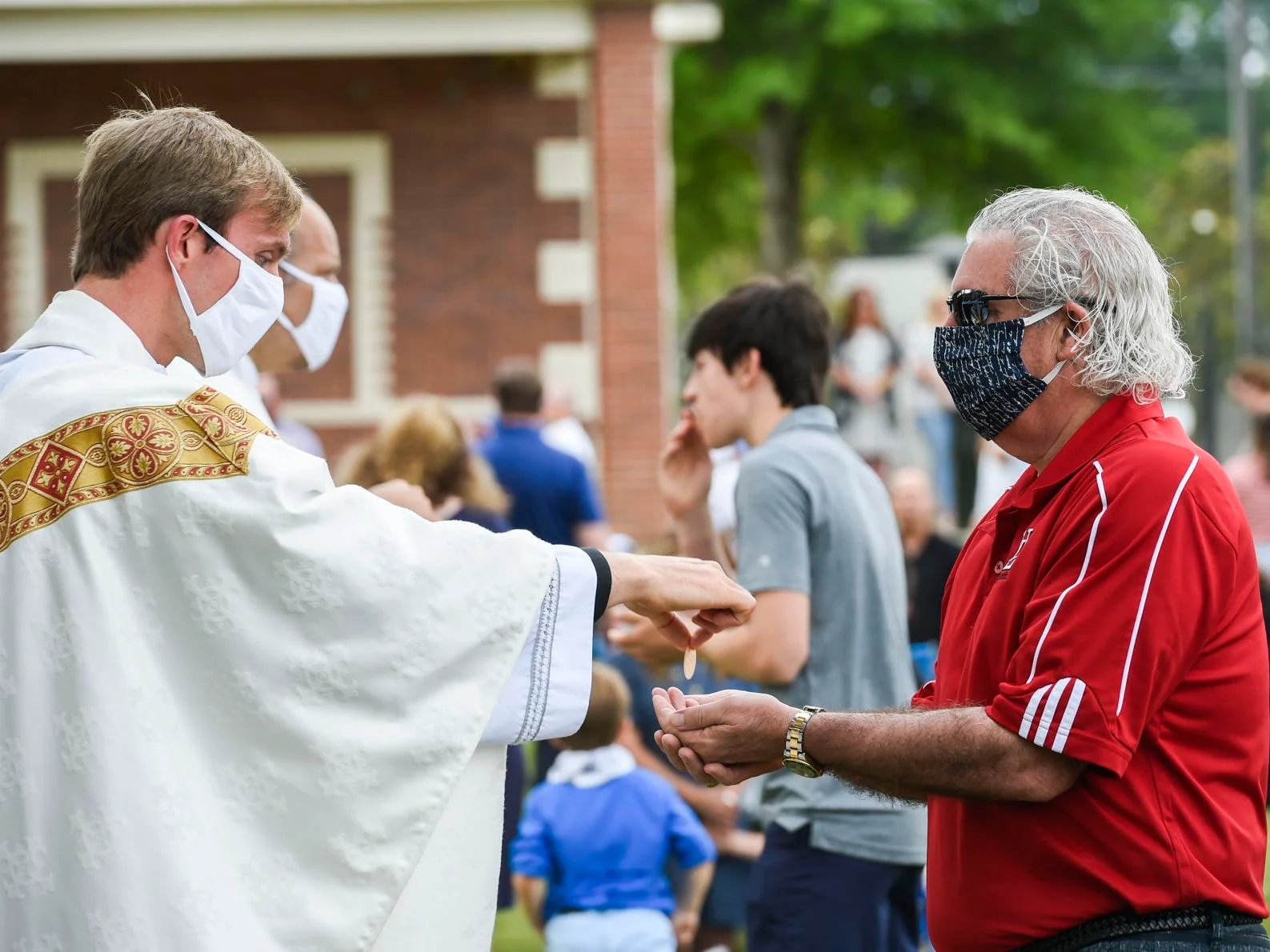
Celebration of Holy Communion outdoors and masked during the COVID-19 Pandemic. Communion means community.
I began pastoral ministry in 1969. I was ordained on June 29, the Day of Saints Peter and Paul. I have never served a congregation that didn’t celebrate the Eucharist every Sunday. But 48 years ago, there were not many congregations that served Holy Communion every Sunday and Festival, as the Apology of the Augsburg Confession, Article 24, confesses is the practice. A common objection was that frequent celebration would make the sacrament too ordinary. It was supposed to be special. So special that perhaps four celebrations per year, or at most once a month, were sufficient.
When I’ve heard that objection in workshops, I wanted to say that maybe the pastor shouldn’t preach every week because then when he or she did preach the sermons would be received as special. But I didn’t go there. Instead, I argued that Holy Communion should be both ordinary and special, like God feeding his people with manna in the wilderness. Manna was certainly special food, and the circumstances in which the people of Israel were fed with manna were special. But it was also meant to be ordinary food—daily bread—to nourish them on their journey through the wilderness to get them to the promised land.
On June 25 in the Lutheran calendar, we commemorate the Presentation of the Augsburg Confession in 1530. Article 7 says that the Christian Church is the assembly of believers in which the gospel of Jesus Christ is purely preached and the sacraments instituted by Christ are rightly administered. The Church is identified by preaching and the administration of the sacraments, not by any hierarchical structure or good works (which ought to flow from our encounter with Christ in word and sacrament). To say that the Church lives from the word and the sacraments is to say that it lives by grace alone and not by its own works or institutional structures.
One of the most striking features of the Gospel accounts of Jesus is the importance of meals to those accounts. Jesus was identified by his opponents as one who ate and drank with sinners and welcomed them to the table. There are also the feeding stories in all four gospels. People needed ordinary bread before their journey home, but Jesus made it something special. The great controversy over Jesus’ claim to be the bread of life from heaven flows from the feeding of the five thousand at the beginning of the 6th chapter of the Gospel of John.
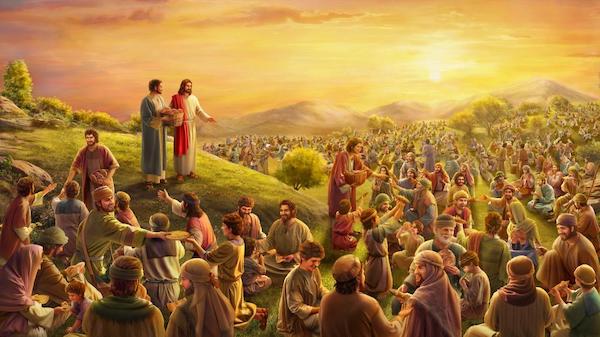
The stories of meals with the disciples don’t end with the institution of the Lord’s Supper in the upper room on the night in which he was betrayed. The risen Jesus is recognized by two disciples on the evening of his resurrection in the village of Emmaus only when he gave thanks and broke the bread. There was also the breakfast meal on the seashore after his resurrection when the disciples went back to Galilee.
We could help people understand the Eucharist better by paying attention to all of those meal stories in the Bible, and in the Old Testament as well as the New — like the story of the angels at Mamre enjoying Abraham’s table hospitality and the feeding of the people of Israel in the wilderness. But the story of the last supper gives us the deepest significance of the meals of Jesus: Jesus gives himself to eat and drink as the feast that brings us before God as sinners redeemed by the blood of the Lamb.
We could also talk about the best traditions of the Church. This meal of Christ began to be kept every Sunday, every Lord’s Day. Justin the Martyr, a lay teacher in Rome in the second century, told the Roman emperor and the Roman senate that Christians gathered on the first day of every week to read the writings of the prophets and apostles, with commentary, and to share this meal. He also tells us that this Sunday event was the occasion for gathering food for distribution to the hungry of the city, for orphans and widows and prisoners and sojourners. Perhaps it was right that the Lord’s Supper should become only the fragmentary meal of bread and wine, a feast in which we remain hungry, not only because it is now held in the early morning of Sunday but because the rest of the food, gathered as if for a banquet, is given away, not eaten up by the congregation.
Years later, Martin Luther said of the holy supper that it is a feast to make us hungrier. More: it is one of the primary occasions in which God gives mercy to us so that we, in turn, might give mercy to our neighbors. He collected alms for the common chest at the common but special meal of the Church. Luther called this the admirabile commercium, the “happy exchange.” Indeed, for Luther, one could not eat and drink of this amazing sacrament of love without being brought to “fight, work, pray, and—if you cannot do more—have heartfelt sympathy” for all of the wretched ones and for the suffering “with which the world is everywhere filled to overflowing.” The gift of Christ in Holy Communion flows into the needs of daily life in our community. The petition of the table prayer is: “give us today our daily bread.”
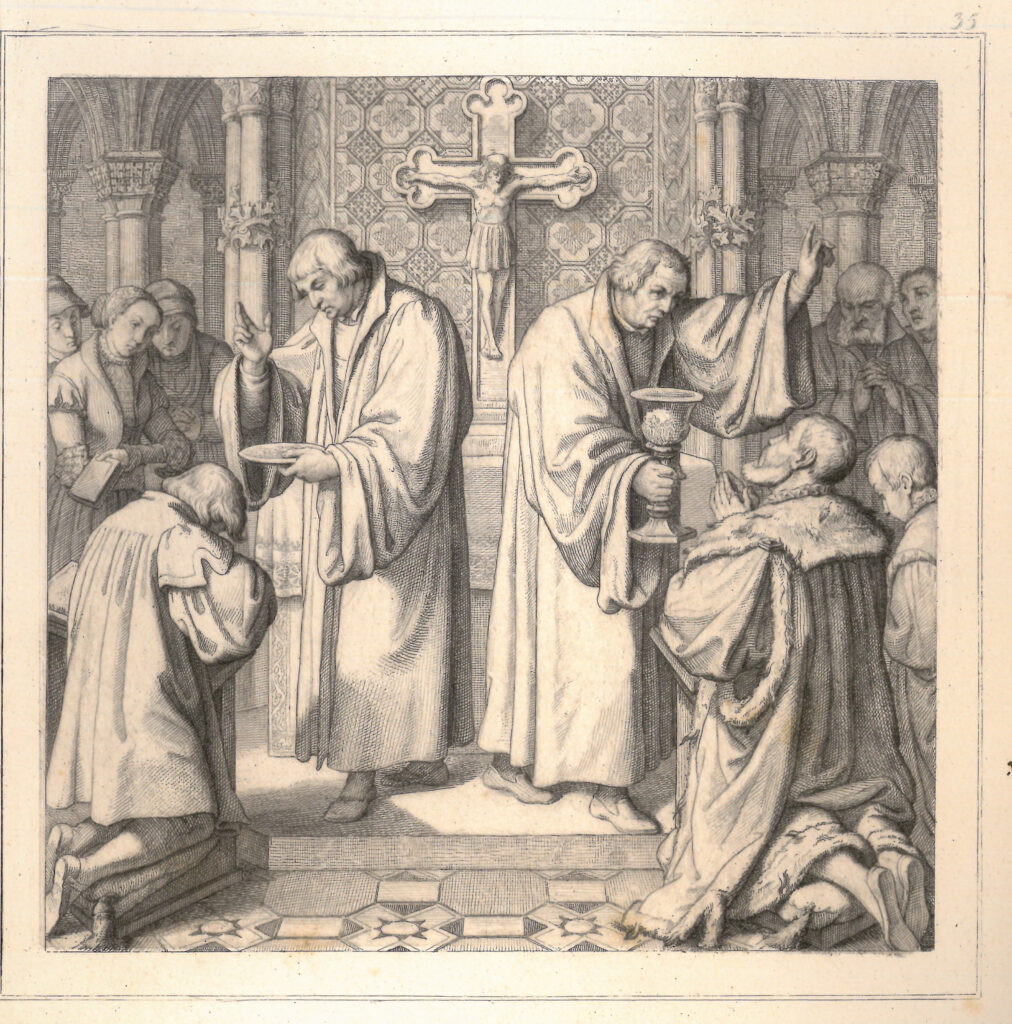
Actually, every petition in the Lord’s Prayer is fulfilled in Holy Communion: we bless God’s Holy Name in the thanksgiving; it is the meal of the kingdom; it is done by God’s will (the command of Christ); it is our daily food and drink for the journey of faith; it enacts forgiveness and reconciliation; it strengthens our faith to face the trials and temptations of life; it even wards off the devil.
At the heart of Holy Communion is community. Luther taught us to pray after the meal that this gift would “strengthen us…in faith toward You and in fervent love toward one another.” The sacrament is not just about me and Jesus; it is about me and Jesus and all of God’s people. Our sharing in the one sacramental body of Christ makes us, the church, one body of Christ in the world, as St. Paul wrote to the Corinthians. We who share the one bread and one cup partake of the body and blood of Christ and are one body in Christ. This is why the Eucharist is the basis of church membership and fellowship.
This communal dimension of the sacrament lies at the heart of the Corpus Christi celebration. I love to tell the social history of this feast. First, because it was promoted by pious women in Liege who had a good friend in the man who became Pope Urban IV. He authorized the feast of Corpus Christi as a universal feast in the Catholic Church in 1264. Second, because Corpus Christi flourished in the towns and cities that were emerging in the high Middle Ages; it was primarily an urban rather than an agrarian festival.
The custom of the great procession brought the whole town together as each guild jockeyed for a position close to the blessed sacrament in the parade. The mystery plays performed on this day provided an opportunity for venting about social inequalities, because you can always get away with social criticism in theater that you can’t get away with otherwise. In a sense, the feast of Corpus Christi provided a firewall against the social breakdowns that were occurring because of the displacement of people from the land and the rapid growth of the cities.
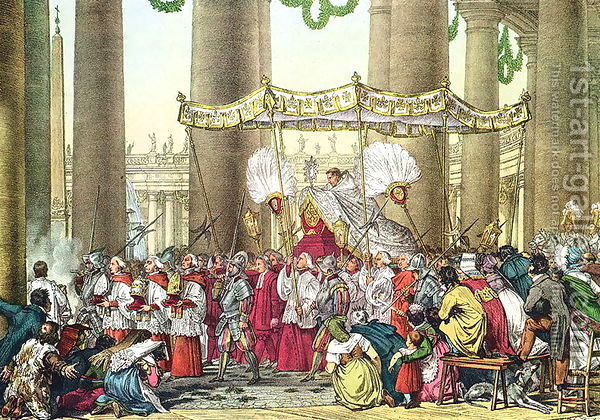
Corpus Christi procession in Rome
Going back to my college years in the early 1960s, I recall how liturgical renewal was inseparable from social renewal, and the sacrament of Holy Communion was central to both. From the beginning—all the way back to the problems in first century Corinth—the Lord’s Supper was social dynamite, bringing masters, clients, and slaves together at the same meal. In the civil rights movement of the 1960s we came to realize that those who ate and drank together at the Lord’s table should not Have to eat and drink separately in the cafeterias. Likewise, those who were baptized in the same font should not have to swim in separate swimming pools or on separate beaches.
Where are bridges between the sacraments and society being built today? Certainly the recovery of the centrality of the holy supper, the recovery of the event as a recognizable (though quite different and special) ordinary meal, the open accessibility of the table to all baptized into the body of Christ, and its connection to sending food and aid and hope into the streets of daily life (for example, through our hunger offerings), provide an opportunity for some fresh thinking about the Holy and Blessed Sacrament of the Body and Blood of Christ. And how wonderful that this fresh thinking is not a departure from but an appropriation of the great tradition! Thanks be to God. Amen.
– Pastor Frank C. Senn, STS
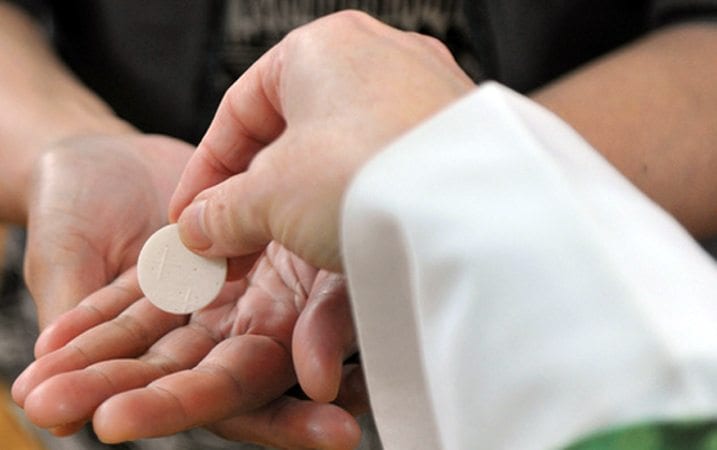
Image above this article: Corpus Christi procession at Eucharistic Congress in Charlotte, NC

